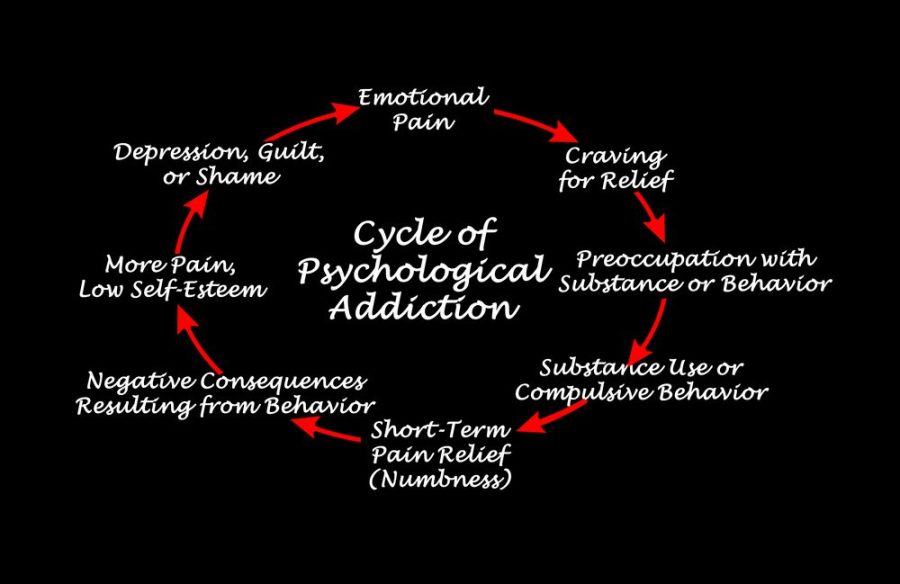It seems that drug and alcohol abuse causes even further damage to an already impaired brain. For example when alcohol is abused to manage the pain of depression it slows down mental abilities and functioning.
 Depression And Drug Abuse They Go Hand In Hand Crestview Recovery
Depression And Drug Abuse They Go Hand In Hand Crestview Recovery
Drugs of abuse are also known to alter dopamine levels.

Depression and drug abuse. Depression affects the same parts of the brain that are most directly impacted by drug and alcohol abuse. A depressed person may struggle to feel any positive or negative emotions and may be unmotivated to leave the house talk to friends or loved ones or to engage in any social activities. Mayo Clinic notes the use of alcohol with depression medications has the potential to counteract the benefits of the drug.
Whats more frightening is when youre the one battling a substance use disorder SUD or an alcohol use disorder AUD and you dont have a solution to the problem. Drug Abuse as a Cause of Depression Alcohol and drug addiction can cause mental illness by changing the chemical balance in the brain. An estimated one-third of people with major depression also have an.
Mood disorders like depression and substance abuse go together so frequently that doctors have coined a term for it. Drugs used to treat depression can be affected by alcohol use. The Link Between Alcohol Abuse and Depression Individuals who suffer from depression are more likely to abuse or become dependent on alcohol.
Drug and alcohol abuse can be scary. It is not always the case that a person with depression will use drugs. When only depression is treated the person will likely continue using the substance of abuse leading to a relapse in depressive symptoms.
The relationship is not hard to imagine. Individual and group therapy to address the clients specific issues that could otherwise complicate recovery from both the depression and the substance use disorder. Some of this confusion is caused by someone not realizing they are suffering from depression until they are checked in for addiction treatment and formally diagnosed during the initial evaluation.
Substance abuse can trigger or intensify the feelings of loneliness sadness and hopelessness often associated with depression. However although some drugs may temporarily help with some symptoms of mental disorders they may make the symptoms worse over time. If a mental health specialist does not diagnose and treat a mental illness quickly the mental illness can encourage the use of alcohol and drugs.
An estimated one-third of people with major depression abuse substances like cocaine heroin and marijuana to cope with depression symptoms. Studies found that people with a mental disorder such as anxiety depression or post-traumatic stress disorder PTSD may use drugs or alcohol as a form of self-medication. Yet depression and drug abuse are fairly common 43 percent of people with substance use disorders will have some type of mental health disorder according to the National Institute on Drug Abuse.
Depression is a mental health condition that involves continually experiencing feelings of sadness and hopelessness. American Addiction Centers provides 24-hour medical detox premium treatment and. If they seek treatment they may be less likely to be honest with their provider.
A recent study by researchers at the University of Southern California examined negative urgencyor acting rashly during periods of extreme negative emotionas the mechanism linking depressive symptoms and substance abuse initiation. Research has suggested that depressive symptoms are linked to the initiation of drug taking in adolescents. Substance abuse can make it more difficult to treat postpartum depression because of the complication of having to treat multiple disorders.
Studies have shown that people with depression have lower levels of dopamine. People suffering from depression often abuse substances to alleviate discomfort a behavior sometimes described as. Depression is common among people battling an addiction to drugs or alcohol.
And not all people using drugs or alcohol do not have depression. Addiction can become a dangerous cycle once it begins. Teens with a substance abuse disorder exhibit more severe symptoms of depression than teens who do not drink or do drugs.
Drug abuse can and often does cause people to exhibit the symptoms associated with depression but it cannot literally give someone the clinical mental health disorder. Medication management for both depression eg using antidepressants anddepending on the substance of abusethe substance use disorder. Over time these emotions influence how people think and act.
The link between these conditions is. The person may still feel depressed or even anxious when. A depressed person may also feel irritable or angry.
Women who develop postpartum depression and use substances may be less likely to seek treatment.

